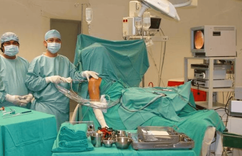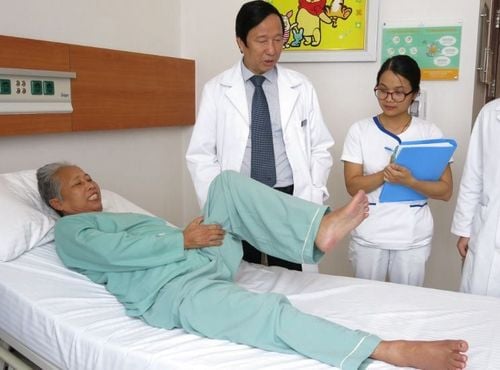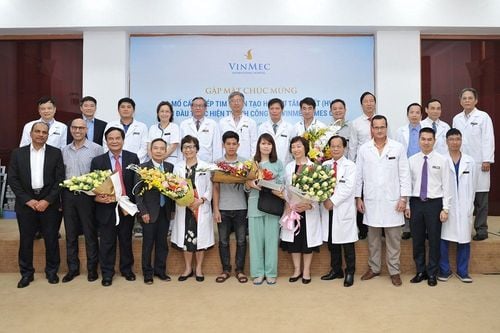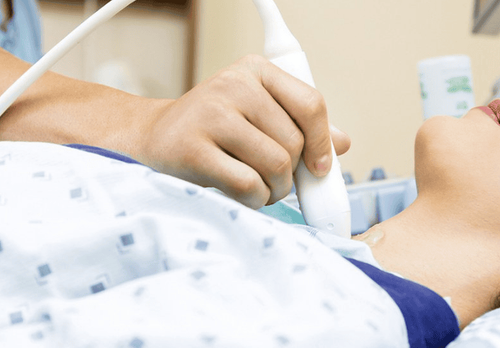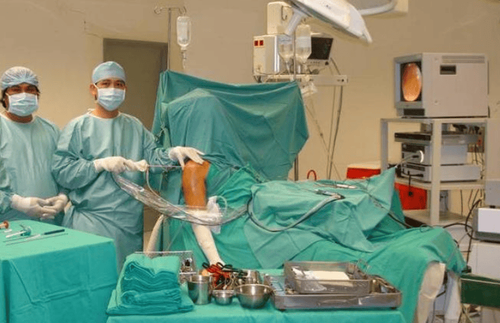Nguyen Thi Van Q, 68, a patient from Hanoi who has just arrived at the Cardiovascular Surgery Department of Vinmec International General Hospital, is in a severe state due to an aortic rupture and requires immediate surgery. life-threatening. For the patient's safety, the surgery was performed by Vinmec Cardiovascular Center experts during an eight-hour period.
Uncle Q suffered two strokes. I discovered that I needed surgery for my thoracic aortic aneurysm after the second incident. Her desire to postpone treatment, however, was motivated by the discovery of further abdominal aortic aneurysms, bilateral iliac artery aneurysms, and a pseudoaneurysm of the visceral artery. Dr. Q sought therapy at a hospital that practiced traditional medicine towards the end of November in order to enhance his health. The patient's ascending aortic aneurysm had expanded to an abnormally enormous size—up to 8 cm in diameter, or more than 2 times normal—and appeared to have split into the aorta, according to the doctors who discovered it. The patient was immediately referred to Vinmec International General Hospital for urgent surgery by medical professionals.
Despite the surgery interfering with the blood vessels supplying the brain, Dr. Q. was able to walk carefully after only five days without any adverse effects on his memory.
Dr. Nguyen Hoang Ha, the hospital's head of the department for cardiovascular surgery, welcomed the patient and said: "The patient has multiple aortic aneurysms, metabolic syndrome, diabetes, hyperlipidemia, and other illnesses. significant aortic regurgitation in other main arteries. All aneurysms will need to be treated, however due to the highest risk of rupture, thoracic aortic dissection surgery is recommended. The patient has many aneurysms and has experienced two strokes, making this surgery highly risky." Therefore, it is essential to find the patient the most complete and secure remedy. Dr. Hoang Ha suggested doing surgery under these circumstances in order to reduce the risk of bleeding, brain injury, and severe infection. The doctors were completely ready for the procedure despite just having a short amount of time to prepare.
The patient's ascending aorta and aortic valve were replaced after 8 hours of operation, and the patient's cardiac arrest lasted 20 minutes. The patient is kept alive during brain circulatory arrest by a different blood pump from the cardiopulmonary apparatus. The patient was conscious after six hours of surgery, and a day later, he was breathing on his own without the aid of a ventilator. After 8 days in the hospital in the beginning of December, the patient underwent treatment, received rehabilitation, and soon recovered.
The daughter of Ms. H. - Q. was really moved by how well her mother's challenging procedure went. The remarkable thing is that, despite the surgery interfering with the blood vessels supplying the brain, he was able to walk easily and his memory was unaffected after only 5 days.
Dr. Hoang Ha continued, "Dr. Q will need to undergo another procedure because he still has lesions in his abdominal aorta and other arteries. The patient can return to the hospital in roughly two to three months so that medical professionals can handle the danger of aortic rupture and blocked arteries. The patient's condition will have fully recovered by that point.
Please dial HOTLINE for more information or register for an appointment HERE. Download MyVinmec app to make appointments faster and to manage your bookings easily.
